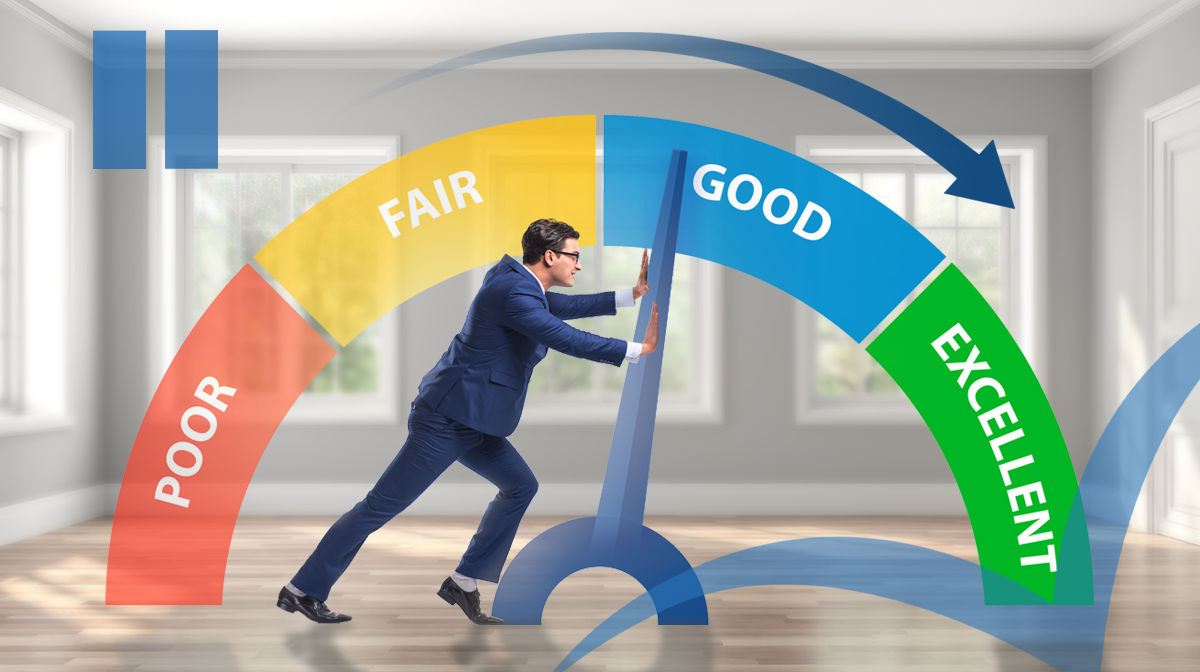Does it seem like you just finished jumping through hoops to get a mortgage while buying your home? It was paper, paper, and more paper!
And as soon as it’s done, offers to refinance your mortgage at a lower interest rate are literally everywhere. Going through that again seems like a terrible idea, even for a lower rate.
But is it a terrible idea? Is refinancing the right thing for you? Or is it just too good to be true?
In this article, we’re talking about when it does make sense to refinance your mortgage. And a few reasons why you shouldn’t do it.
When should you refinance your mortgage?
A mortgage refinance means getting a completely new mortgage to replace your current mortgage. The old loan is paid off by the new loan and if any of the following situations are true -- that’s a good thing.
A Lower Interest Rate
A lower interest rate on your mortgage means you’ll save money with a lower monthly payment and pay less interest over the life of the loan.
However, saving money on interest might not be enough of a reason to refinance. Since there are costs associated with getting a mortgage (take a look at this article where we break that down for you) you should be saving enough to offset the cost of the refinance in a relatively short period of time.
In other words, the savings need to ‘pay for’ the refinance costs fairly quickly. To calculate how long it will take to break-even, divide the potential monthly savings into the total costs of the refinance (a good rule of thumb is $3500 in loan costs.)
You need to make the new payment for that number of months to save enough to cover the refinance costs. If it’s a reasonable amount of time, it makes sense to refinance. A reasonable amount of time is different for everyone and we’ll talk more about that below.
Change From An Adjustable Rate to a Fixed
There are many good reasons to get an adjustable-rate mortgage. As long as you fully discuss it with your loan officer before getting one, It’s a relatively low risk type of mortgage.
But if interest rates for fixed rate loans fall low enough, you may see the benefit of refinancing. If this is the case, your monthly payment might not be changing, but you’ll be gaining long term interest rate security.
Point Equity works with clients to analyze these situations, providing detailed information to help make this an easier decision.
Shorten Your Loan Term
Another reason to consider a refinance is to trade your current 30-year mortgage for a 15-year mortgage. A shorter-term mortgage helps accelerate equity building in your home.
Also, the interest rate for a 15-year loan is typically lower than for a 30-year loan. But the monthly payment is higher when you’re paying it back in half as many years, making it harder to qualify for a 15-year mortgage.
It’s also important to consider another thing - the refinance costs. Add these costs to the increase in your monthly payment as you evaluate moving forward with this type of refinance.
Combining A First + Second Mortgage
If you got a first and second mortgage when you bought your home, a drop in interest rates is a great opportunity to refinance into one loan with one monthly payment. As long as you have enough equity in your home to refinance, it makes sense to refinance.
Even if the new payment doesn’t save you money monthly, it still makes sense to refinance if your second mortgage is an adjustable loan. Locking in a fixed rate definitely makes sense.
But, as in every scenario, what makes sense isn’t the same for everyone. A Point Equity loan officer will consult with you to see if this is your best option.
Taking Cash Out For Remodeling
Taking cash out of the equity of your home is tax-deductible if you’re using the funds to pay for a substantial remodel. Taking cash out for any other reason means the interest on the cash out portion won’t be tax deductible.
We encourage you to check with a CPA before moving forward, to make sure your purposes for taking the cash out fits within current IRS laws.
Canceling Mortgage Insurance
If you have enough equity in your home to remove the requirement for mortgage insurance, it makes sense to refinance. The equity may have increased by paying the principal down on your mortgage or through increasing property values.
Point Equity will help you review your options and the costs, making sure you and your home are eligible before you move forward with a refinance.
When You Shouldn’t Refinance
Even if one or more of the reasons above exists, it still might not make sense for you to refinance your home. Consider the following situations before deciding if refinancing is a good idea for you.
Moving Within Two Years
If you plan on moving within a couple of years, it’s likely to take too long to break even on the cost of refinancing no matter how much potential monthly savings. If it takes you 36 to 60+ months to break even, refinancing is a waste of money and time.
Instead, if interest rates are really low, you might reconsider your timeline and move sooner to take advantage of them in a new home.
Don’t Cash-out to Consolidate Consumer Debt
If you’re carrying high credit card balances, car payments, or student loans, stop and consider before taking equity out of your home to pay off any of these debts.
Rolling everything into a larger mortgage may seem like a great way to lower your costs, but there are so many reasons this is probably a bad idea.
Credit card balances grow for a reason and it’s common to see them raise again after a debt-consolidation refinance. And while getting rid of student loan debt sounds like heaven, you should check into refinancing the student loan instead of stealing your home equity.
Don’t Cash-out to Redecorate
The final bad reason to refinance is to take cash-out to redecorate your home. Consider the fact that paying for furnishing with a 30-year (or even 15-year) mortgage is a long time. The amount of additional interest payments you will make is steep.
And it’s probably not tax-deductible.








